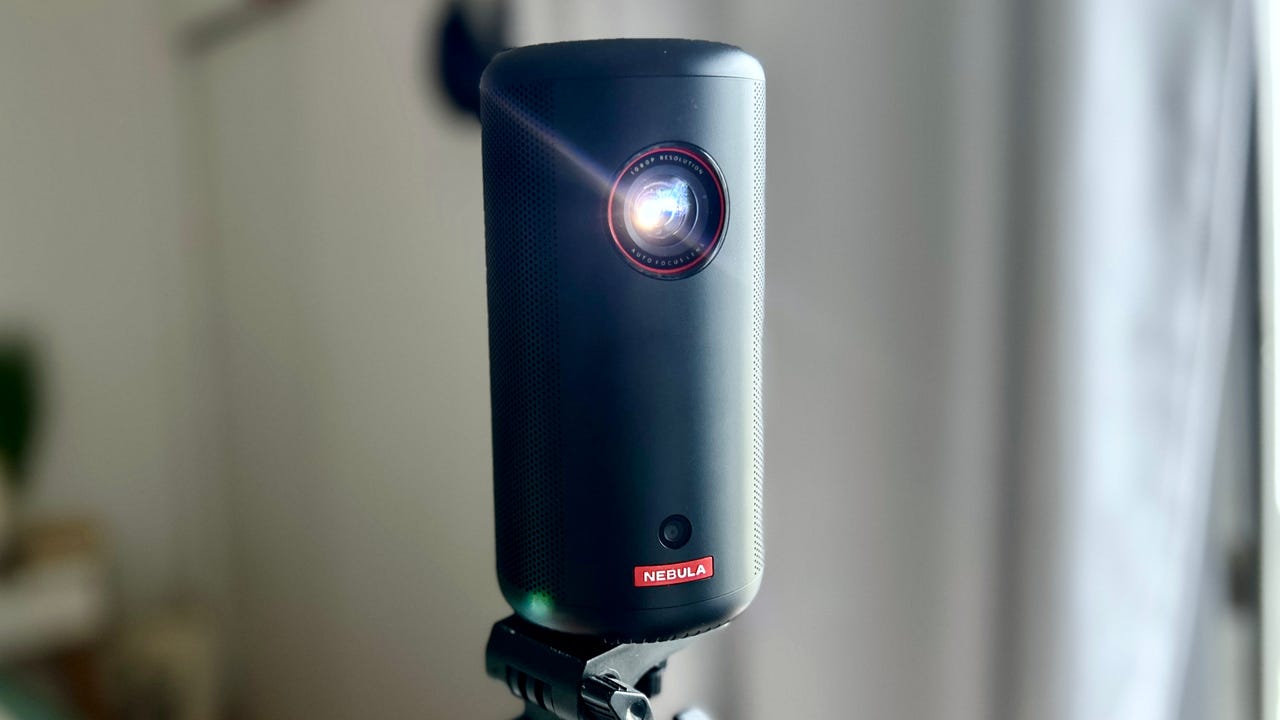'ZDNET Recommends': What exactly does it mean?
ZDNET's recommendations are based on many hours of testing, research, and comparison shopping. We gather data from the best available sources, including vendor and retailer listings as well as other relevant and independent reviews sites. And we pore over customer reviews to find out what matters to real people who already own and use the products and services we’re assessing.
When you click through from our site to a retailer and buy a product or service, we may earn affiliate commissions. This helps support our work, but does not affect what we cover or how, and it does not affect the price you pay. Neither ZDNET nor the author are compensated for these independent reviews. Indeed, we follow strict guidelines that ensure our editorial content is never influenced by advertisers.
ZDNET's editorial team writes on behalf of you, our reader. Our goal is to deliver the most accurate information and the most knowledgeable advice possible in order to help you make smarter buying decisions on tech gear and a wide array of products and services. Our editors thoroughly review and fact-check every article to ensure that our content meets the highest standards. If we have made an error or published misleading information, we will correct or clarify the article. If you see inaccuracies in our content, please report the mistake via this form.
I tested the world's smallest projector with Google TV, and it blew me away

ZDNET's key takeaways
- The latest Nebula Capsule 3 Pocket Projector is ideal for people who want to take the cinema experience on the go while reaping the software benefits of Google TV.
- Despite its small form factor, the Capsule 3 delivers top-quality visuals and sound.
- On battery power, the projector will run for about 2.5 hours, which may be too short for some users.
I've always preferred watching my favorite movies and shows on a big screen; the immersion and engulfing experience is bar none. Unfortunately, this experience is typically limited to the movie theater due to space constraints in places like my home. The latest Nebula Capsule 3, the first projector powered by Google TV, is here to solve that problem.
Also: I replaced my TV with this long-throw projector and it's absolutely worth it
Anker calls the Capsule 3 a "Pocket Cinema," and the description could not be more accurate. With its small form factor, just a tad larger than a soda can, and weight of just 2.1 pounds, the projector is as easy to carry around as a portable speaker. Plus, you'll get a lot more than just audio with this gadget.
View at AmazonDespite its small size, the Capsule 3 can provide big-screen entertainment of up to 120 inches. That's quite generous compared to the 45-, 55-, or even 85-inch sizes typically displayed by TVs. The projector's picture quality doesn't disappoint, either.
The Capsule 3 projects at 1080p, which is not as crisp or clear as a 4K projector, but very much sufficient for a $500 projector. In dimmer settings, it produces vibrant colors, detail, and contrast, with a peak brightness of 200 ANSI Lumens. Anker sells a Laser variant that projects up to 300 ANSI Lumens if you care for something even brighter.
I tested the Capsule 3 by binge-watching The Crown on Netflix, and as you can see in the photo below, the picture looked fantastic, almost just as good as similarly-priced TVs.
The built-in 52Wh battery allows for 2.5 hours of playtime, which is not the most reliable if you're watching outdoors, but just good enough if you're at home and/or near an outlet.
Also: The best outdoor projectors: Expert tested and reviewed
The projector features an 8W Dolby Audio Speaker, providing a surprisingly cinematic sound, enough to make my partner say, "The sound on this thing is insane." I'll admit that I enjoyed the sound from it more than my everyday TV.
Setting up the projector was a fairly seamless experience. All you have to do is power the projector and use the included remote or the remote in the Nebula mobile app to follow the setup instructions, such as connecting it to Wi-Fi and signing in to Google TV.
The UI has the same feel as a standard smart TV operating on Google's platform and, as a result, is extremely easy to navigate, including finding your favorite streaming services and syncing accounts. Google TV also means that the projector supports Netflix right out of the box. The same can't be said about other mid-range projectors.
One of my favorite features is the projector's intelligent environment adaption, including Autofocus and Auto Keystone Correction. Together, you can place the projector wherever is the most convenient for you, and the projection will automatically adjust its angle and size to the area you are casting to. See how it works below.
This convenience was a big upgrade from the cheap $100 projector I used back in college, which had to be perfectly centered in front of a wall, or the picture would be warped.
ZDNET's buying advice
If you have enough use cases for a portable projector, whether that's taking it on vacation, watching movies in your yard, or just enjoying a cinema-like experience in the comfort of your home, then the Capsule 3, powered by Google TV, is an excellent choice.
You won't be disappointed in the sound or video quality, and the environment adaptation technology makes the projector extremely flexible in terms of placement. Just don't expect the longest-lasting battery life (unless you keep it plugged in) or the brightest display during the daytime.
